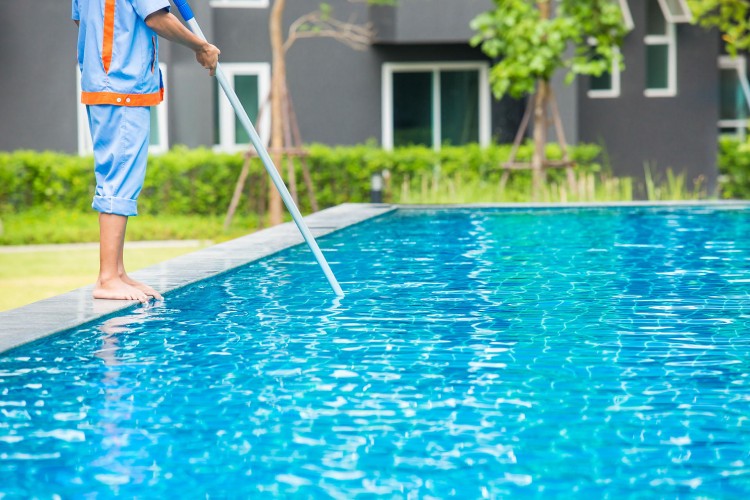There is nothing more refreshing than stepping into a pool on a hot summer day. While the thought of feeling cool and having clean water touch your skin is enough to ease you from the hot weather, this dream crumbles the moment you see a pool that is in a bad shape. It is more disturbing rather than refreshing if you see end up seeing a swimming pool that has not been tended to for a long time. Hence, proper and regular maintenance should be done to make sure you have a clean and well-kept swimming pool that you can run to every time you feel like freshening up.
Useful Maintenance Tips for Your Swimming Pool
To have the picture of a clean and refreshing swimming pool come to reality, you should know how the basics of pool maintenance. Here are a few tips that you can start with.
Know Your Pool Water’s Chemistry
Your pool water should be checked for its ph, alkalinity, and sanitizer levels. This is why it is important to always have water testing kits available on hand. When we speak of PH levels, we are talking about how acidic or basic the pool water is. Make sure that the values fall within 7.2 to 7.8. As for its alkalinity, the ideal range should be somewhere within 80 to 120 parts per million. However, the range for your sanitizer level would vary as this will depend on the type of sanitizer you use.
You can use chlorine to sanitize the water, calcium to soften your water, Cyanuric acid for UV ray protection, and other total dissolved solids that include potassium, magnesium, bicarbonates, chlorides, sulfates, sodium, and other organic materials present in your water. Do remember that the ideal value for Chlorine is 1.0 – 2.0 ppm, 40-80 ppm for Cyanuric Acid, 180-220 ppm for Calcium hardness, and 5000 ppm below for total dissolved solids. On the other hand, treat your water as necessary. It is important that you make these chemicals readily available in case you need to use them.
Timeline for Checking Your Water
It is important that you set a timeline for checking your water’s components. Keep in mind that pH and Chlorine should be tested twice a week. Cyanuric acid and calcium hardness are to be tested two times in a season, and the total alkalinity is to be tested once a week or if you do not have the time, you can do it at least once a month.
Mind Your Pool’s Circulation
If you are too busy to use your pool for a long time, you may end up with cloudy or algae-infested water. In this case, you have to be aware that circulation or movement is necessary to keep your water clean, safe, and clearer. Spare time to check if your pump is working. The ideal time of pump operation should be continuous throughout the entire day. However, if you cannot afford to do so, you can opt to do it for at least 10 to 12 hours a day. Regular filter and pump cleaning should also be done to make sure it does not deteriorate and its optimal functioning is not affected by debris build-up.
Shock Your Pool from Time to Time
When your swimming pool water becomes stagnant, there is a possibility for it to be cloudy and poor in quality. Hence, you have to shock your pool from time to time to keep your water clear, odor-free, and less irritating to the eyes. You can do this by using chlorinated products, some of them already have shockers that are built-in, while some don’t so make sure to choose one that is suitable for you.
Keep Your Swimming Pool Clean
Nobody wants to be drenched in dirty water. Hence, your maintenance should always include cleaning your pool. While treating your water with chemicals help, you cannot prevent the occurrence of leaves, dust, debris, wastes, or any type of body falling into your water. You may need to invest in reliable cleaning devices that you can use for your manual cleaning.
The basics would include a net skimmer, a pool brush, and a pool vacuum. You may check out the bestvacuumresource.com for some of the best ones in the market. These are important in keeping your pool clean because unattended dirt, dust, and other items may be flown into the pool over time. Not being able to clean them properly may create more problematic situations for you.
If your pool is too big for you to clean manually, you can opt to get an automatic pool cleaner to help. This will save you more time and get things done faster. However, you have to consider the price point for this one compared to basic cleaning. Choose the equipment that gives best suits your situation.
Conclusion
Swimming can do wonders for our bodies. It can help us be fit, strengthen our immune system, clear our mind, and recharge our energy. Make sure to do it in clean and safe waters. Learn how to do basic maintenance for your swimming pools to get the most out of your experience without spending much. Follow one or more of the tips mentioned above to have pool water that is clean, refreshing, odor-free, crystal clear, and safe to swim in.




